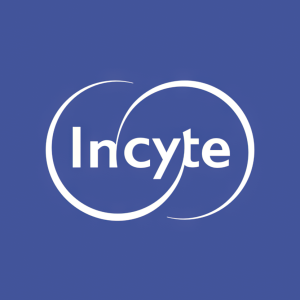Incyte Announces the Validation of the European Marketing Authorization Application for Ruxolitinib Cream in Vitiligo
- The MAA seeks approval of ruxolitinib cream for the treatment of adolescent and adult patients with non-segmental vitiligo with facial involvement
“The EMA’s validation of the MAA for ruxolitinib cream marks an important milestone for people with vitiligo, for whom there is often a significant impact on everyday life and who currently have limited treatment options,” said
The MAA is supported by data from the Phase 3 TRuE-V clinical trial program evaluating the safety and efficacy of ruxolitinib cream in more than 600 people (age >12 years) with vitiligo. Results from the Phase 3 program, recently presented at the 30th
Vitiligo is a chronic autoimmune disease characterized by depigmentation of skin that results from the loss of pigment-producing cells known as melanocytes. Over-activity of the JAK signaling pathway has been shown to drive inflammation involved in the pathogenesis and progression of vitiligo. It affects approximately
About TRuE-V
The TRuE-V clinical trial program includes two Phase 3 studies, TRuE-V1 (NCT04052425) and TRuE-V2 (NCT04057573), evaluating the safety and efficacy of ruxolitinib cream in patients with vitiligo.
The studies each enrolled approximately 300 patients (age ≥12 years) who have been diagnosed with non-segmental vitiligo and have depigmented areas including at least
The primary endpoint of both studies in the TRuE-V program is the proportion of patients achieving F-VASI75, defined as at least a
For more information on the TRuE-V studies, please visit https://clinicaltrials.gov/ct2/show/NCT04052425 and https://clinicaltrials.gov/ct2/show/NCT04057573.
About Ruxolitinib Cream
Ruxolitinib cream is an investigational novel cream formulation of Incyte’s selective JAK1/JAK2 inhibitor ruxolitinib.
In
Additionally, ruxolitinib cream is being investigated for the treatment of adolescents and adults with vitiligo in the Phase 3 TRuE-V clinical trial program. Results from this program were recently announced.
Opzelura is a trademark of
About Incyte Dermatology
Incyte’s science-first approach and expertise in immunology has formed the foundation of the company. In Dermatology, the Company’s research and development efforts are focused on leveraging our knowledge of the JAK-STAT pathway to identify and develop topical and oral therapies with the potential to modulate immune pathways driving uncontrolled inflammation and help restore normal immune function.
Currently,
About
Forward-Looking Statements
Except for the historical information set forth herein, the matters set forth in this press release, including statements regarding whether or when ruxolitinib cream might provide a successful treatment option for patients with vitiligo, the Company’s ongoing clinical development program for ruxolitinib cream and its dermatology program generally, contain predictions, estimates, and other forward-looking statements.
These forward-looking statements are based on the Company’s current expectations and subject to risks and uncertainties that may cause actual results to differ materially, including unanticipated developments in and risks related to: unanticipated delays; further research and development and the results of clinical trials possibly being unsuccessful or insufficient to meet applicable regulatory standards or warrant continued development; the ability to enroll sufficient numbers of subjects in clinical trials and the ability to enroll subjects in accordance with planned schedules; the effects of the COVID-19 pandemic and measures to address the pandemic on the Company’s clinical trials, supply chain and other third-party providers and development and discovery operations; determinations made by the FDA, EMA or other regulatory authorities; the Company’s dependence on its relationships with its collaboration partners; the efficacy or safety of the Company’s products; the acceptance of the Company’s products in the marketplace; market competition; sales, marketing, manufacturing and distribution requirements; and other risks detailed from time to time in the Company’s reports filed with the
1 Kruger C. A review of the worldwide prevalence of vitiligo in children/adolescents and adults. Int J Dermatol. 2012;51(10):1206-1212.
2 Rodrigues M. New Discoveries in the pathogenesis and classification of vitiligo. J Am Acad Dermatol. 2017; 77:1-13.
View source version on businesswire.com: https://www.businesswire.com/news/home/20211028005620/en/
Media:
Tel: + 41 21 343 3113
ezawislak@incyte.com
Tel: +1 302 498 6171
cloveman@incyte.com
Investors:
Tel: +1 302 274 4773
cchiou@incyte.com
Source:







